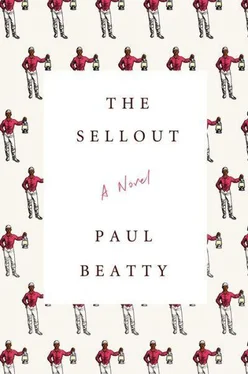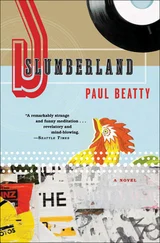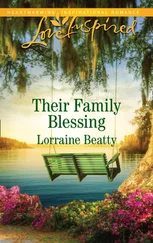“So if I’m an Untouchable, and you’re my slave, what does that make you?”
“As a talented artist and thespian. I’z a Brahmin. After I die, I get nirvana. You come back exactly to where you are now, wallowing in cow shit.”
I appreciated the help, but as Hominy rattled on about the varnas and delineating his version of the Indian caste system as it might apply to Dickens, I began to figure out what my mental block was. I was feeling guilty. Realizing I was the Arschloch at the Wannsee Conference, the Afrikaner parliamentarian in Johannesburg in ’48, the wannabe hipster on the Grammy committee who in an effort to make the award more inclusive comes up with meaningless categories like Best R&B Performance by Duo or Group with Vocals and Best Rock Instrumental by a Soloist Who Knows How to Program But Can’t Play Any Instruments. I was the fool who, as topics like railroad car allotments, bantu stands, and alternative music were raised, was too cowardly to stand up and say, “Do you motherfuckers realize how ridiculous we sound right now?”
With the potatoes planted, the compost spread, and the hose finally in the correct furrow, it was time to test my makeshift irrigation system. I opened the water spigot and watched one hundred feet of unpunctured green garden hose swell as it wound its way through the string beans, past the Spanish onions, and around the cabbage, until six jets of water squirted into the sky, arcing high over but not onto the potatoes, turning a small barren patch of land near the back fence into a mini flood plain. Either the holes were too small or the water pressure was too high; in any case, there’d be no homegrown spuds this year. Next week’s forecast was for 80 degrees. Way too warm to get any kind of root vegetables started.
“Massa, you not going to turn it off? You wastin’ water.”
“I know.”
“Well, then maybe next time you plant the potatoes in the dirt where the water’s landing.”
“I can’t. That’s where my dad’s buried.”
Motherfuckers don’t believe I buried him in the backyard. But I did. Had my lawyer, Hampton Fiske, backdate some forms and planted him in the far corner where the stagnant pond used to be. Nothing ever grows over that square of land. Not before he died or since. There’s no headstone. Before Marpessa’s satsuma tree I tried to plant an apple tree for a cenotaph. Dad used to like apples. He ate them all the time. People who didn’t know him thought he was really healthy, because you’d rarely see him in public without a Macintosh and a can of V-8. Pops loved the Braeburns and the Galas, but the Honeycrisps were his favorites. Offer him a bland-ass Red Delicious and he’d look at you like you were talking bad about his mama. I regret that I never checked the pocket of his sports coat when he died. I’m certain there was an apple in there. He always brought one to nibble on after the meetings were over. If I had to guess, I’d say it was a Golden Russet, those keep well during winter. We never grew apple trees, though. Much as he complained about the pretentious white people on the Westside, I think he secretly liked to drive over to Gelson’s whenever they had Opalescents on sale for $4.50/lb., or to the Farmers Market if some Enterprises were in. I drove all the way to Santa Paula looking for a tree to plant. Something special. Since the late 1890s, Cornell University has been breeding the world’s best apples. The school used to be chill. If you asked nicely and paid the shipping and handling, they’d send you a box of late-season Jonagolds just to spread the gospel. But in recent years, for whatever reason, Cornell has taken to licensing the new varietals to local farmers, and unless you own a farm in upstate New York, you’re shit out of luck and have to make do with the occasional imported Florina. So now the university orchards in Geneva, New York, are to the black market apple trade what Medellín, Colombia, is to cocaine. My connect was Oscar Zocalo, my lab partner at Riverside, who was doing his postgrad at Cornell. We met in the airport parking lot during an air show. Yahoos flying biplanes, putting Sopwith Camels and Curtisses through their paces. Oscar insisted we do the “deal” car window to car window, crime-movie-style. The sample was so delicious that I scooped up the excess juice running down my chin and rubbed it into my gums. I don’t know if this is irony or not, but the best fucking apples taste like peaches. I drove home with a ready-for-ground Velvet Scrumptious tree, the crack of the apple world, insane yield, perfect snap, chock-full of vitamin C. I planted the tree about two feet from where I buried Daddy. I thought it would be nice if he had some shade. Two days later it was dead. And the apples tasted like mentholated cigarettes, liver and onions, and cheap fucking rum.
I was standing on my father’s grave, in the mud, underneath the water spray meant for the potatoes. From there I could see the whole farm from front to back. The rows of fruit trees. Separated by color. Light to dark. Lemons. Apricots. Pomegranates. Plums. Satsumas. Figs. Pineapples. Avocados. The fields, which rotate from corn to wheat, then to Japanese rice, if I feel like paying the water bill. The greenhouse sits in the middle. Backed by leafy processions of cabbage, lettuce, legumes, and cucumbers. The grapes on vines along the south fence, tomatoes on the northern, then the white blanket of cotton. Cotton that I haven’t touched since my father died. What was it Hominy said to me when I first started popping off about bringing back Dickens? You heard the saying, you can’t see the forest for the trees? Well, you can’t see the niggers for the plantation. Who was I kidding? I’m a farmer, and farmers are natural segregationists. We separate the wheat from the chaff. I’m not Rudolf Hess, P. W. Botha, Capitol Records, or present-day U.S. of A. Those motherfuckers segregate because they want to hold on to power. I’m a farmer: we segregate in an effort to give every tree, every plant, every poor Mexican, every poor nigger, a chance for equal access to sunlight and water; we make sure every living organism has room to breathe.
“Hominy!”
“Yes, massa?”
“What day is it?”
“Sunday. Why, you going down to Dum Dum’s?”
“Yeah.”
“Then ask that bitch-nigger where my fucking Little Rascals movies at!”
Attendance was light, maybe ten people. Foy, unshaven and draped in a wrinkled suit, stood in the corner twitching and blinking uncontrollably. Foy had been in the news lately. His out-of-wedlock children so numerous, they’d filed a class-action suit against him for the emotional distress he’d caused by sticking his face in front of a camera or microphone at every opportunity. At this point it was only the smooth Euclidean planar perfection of his box cut and his Rolodex that was holding both him and the Dum Dum Donut Intellectuals together. Hard to lose faith in a man who even at the worst of times can keep his hair on point and call upon friends like Jon McJones, a black conservative who’d recently added the “Mc” to his slave name. McJones read from his latest book, Mick, Please: The Black Irish Journey from Ghetto to Gaelic . The author was a good get for Foy, and with the free Bushmills, there should have been more people, but there was no doubt the Dum Dum Donut Intellectuals were dying. Maybe the notion of a cabal of stupid black thinkers had finally outlived its usefulness. “I’m in Sligo, a small artist hamlet on the northern coast of the Emerald Isle,” McJones was reading. His lisp and faux-white enunciation made me want to punch him in the face. “The all-Ireland hurling championship is on the telly. Kilkenny versus Galway. Men with sticks chasing a small white ball. A round-shouldered bloke in a fisherman’s sweater stands behind me gently tapping the butt end of a shillelagh into the palm of his hand. I’ve never felt more at home.”
Читать дальше












